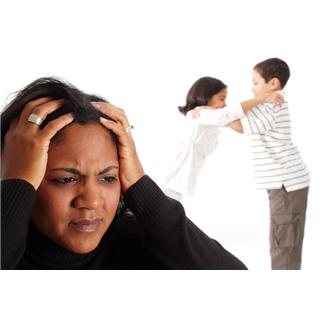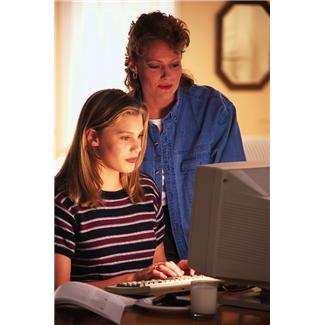Diane Gold Interviews V. Mark Durand: The Highlights
DIANE GOLD INTERVIEWS V. MARK DURAND: THE HIGHLIGHTS (Issue 21)
by Diane Gold
Last week, I had the pleasure of interviewing V. Mark Durand, PhD, specialist in autism spectrum disorders and behavior change. What I found fascinating was the interview offered simple, five-word or less solutions to difficult problems. Mark has the ability to communicate how to get it done and do the research his solutions are based upon. Very rare in one person.
This article will focus on the important points of the interview. Although we did speak about children from all behavior groups, these lessons can be applied to any parents and children.
NORMAL PARENT FEELINGS
D: What would you say in laymen’s terms, are the three emotions we parents have to experience to lose our optimism or our ability to act like adults when kids do misbehave?
M: Well, speaking with lots of families, and we’ve worked with hundreds of families now, both with children with autism spectrum disorders, those with other kinds of disorders, and those without disorders.
D: Right.
M: Common emotions are frustration. That can be also anger at a child who is not behaving, who is not doing what’s being asked. Sometimes guilt, somehow feeling that it’s my fault that this is going on, and they feel guilty. And also, especially out in public, or among family members, embarrassment.
D: Right.
M: That somehow I’m doing something wrong, people are judging me or people are judging my child.
D: Right.
M: Those are the three major themes that we hear from most of the families we work with.
D: I would say that most parents feel those emotions. That’s pretty normal. I know that emotions don’t have a normal and a not normal. But, would you say that most parents who are having a fine life have those emotions?
 M: Oh, absolutely. And that’s one of the secrets. I think that many parents feel that they’re somehow different because they have these emotions. And that their parenting must be different because it looks like other people handle everything fine. And everything is perfect in their family. And once you delve into what goes on, you realize that 99.9% of parents feel these kinds of emotions.
M: Oh, absolutely. And that’s one of the secrets. I think that many parents feel that they’re somehow different because they have these emotions. And that their parenting must be different because it looks like other people handle everything fine. And everything is perfect in their family. And once you delve into what goes on, you realize that 99.9% of parents feel these kinds of emotions.
The difference is when those emotions start to overwhelm you and get in your way of making good judgment with your child.
OPTIMISTIC PARENTING GIVES US TOOLS NOT TO LOSE IT WITH OUR KIDS
When I was a parent of young children, I would say that I would yell at my children for playing too loudly in the back seat. I’m not saying there’s pride here; I’m saying I did this. Or they might hit each other in the back seat. If I had taken an Optimistic Parenting course and utilized the teachings, what would I have done to control the emotions that made me yell or what would I have done to calm the kids down?
M: Well, there are a couple of issues. What I mean by Optimistic Parenting [is] it doesn’t mean that you walk around thinking that everything is perfect and fine. That’s not optimism. Optimism really is this ability to take the situation and kind of figure it out and wake up the next day and do it again.
D: Mmm.
M: So you’re not giving up. You’re not thinking that everything is futile.
D: Right. What you’re able to do is continue to do what you’re doing.
M: The first or one of the first things we would do in Optimistic Parenting is start to think or say to the parent,
“What are you thinking when your kid is screaming in the back? What are you saying to yourself?”
And there’s another thing. We don’t directly try to change your emotions. So, if you’re feeling guilty or feeling embarrassed, we’re not going to say you shouldn’t feel guilty.
D: Right.
M: That’s insulting in some ways.
D: Right.
M: But, what we’ll say is,
“What are you thinking?”
(as the parent answering)
“Well, I think other people are judging me.”
M: And sometimes that’s true.
“So, how can we help you deal with those thoughts in a way that’s productive? Does it help you to think that way?”
(as the parent answering)
“Well, no, not really.”
M: “Can we do something to change your mood or to change your outlook so this does not get in the way?”
And the book is called Optimistic Parenting: Hope and Help, so we provide techniques for dealing with kids’ yelling in the back seat.
D: Direct techniques that can be applied specifically to specific situations.
M: Correct. So, we might say, often the reaction at the moment is not the most important thing.
“All right. Let’s plan for it. You know your kids tend to yell in the back seat. How can I organize some activities for them, some games, whatever, so, at least, they’re kept busy. How can I also alert them ahead of time that, should you yell in the back seat, I will give you one warning. After that one warning, something will happen.”
And it might be a check depending on the child’s age; you know, you lose a star, you lose a privilege or something like that. So that act of planning also helps the parent think that I’m now in control. So, this isn’t just a catastrophe that happens all the time. This is something I know is going to happen. I have a plan walking in. I’m going to stick to my plan. It may not work the first week. But it will eventually start to work. We try to get parents to start thinking that way. And, along the way, those emotions stop taking over. I might be frustrated, but I know I have a plan. And that’s what Optimistic Parenting is.
D: That’s great…That’s very helpful to me.
BEHAVIOR CONTRACTS
D: So fast forward. Let’s say the kids in the back seat grew up, and now they’re 12, or one of them 15 and one of them is 12. And they’re in the back seat, and they’re not supposed to be on their phone, or they’re being too animated on their phone, and it’s distracting my driving, let’s say. What do I do then? What do I do if they don’t listen to me, if I say you’re too loud?
M: Well, as kids get older, we make those kind of rules much more specific, if necessary. For example, numerous times, I’ve written up behavioral contracts.
D: Mmn.
M: “Here are the rules in the car.”
D: OK.
M: “You want me to drive you someplace.”
D: Right.
M: “I want you not to use your phone.”
D: That’s great. Aha.
M: “And so, you know, now, we’re going to put this in writing. We’re going to agree on it. We’re going to sign it. And if you don’t follow your end of the contract, I won’t follow my end of the contract.”
And this takes away the yelling, the screaming, the emotions of it. It’s just now a business deal.
D: What do you do if the kid won’t sign the contract, or if the kid breaks the rules, and the parents work so they can’t be home to monitor the kids. And they have to go to work. And the child didn’t do the jobs. And the child missed the bus and the child didn’t eat breakfast?
(Laughter)
M: Well, there are a lot of things in there. But, again, what you’d want to do is build in some accountability.
D: Um-hum.
M: I might come home and find out you didn’t eat breakfast and you missed the bus. So what’s the consequence for that? And, again, start to build into the contract,
“Here are the things you’re supposed to do. Here are the things you want me to do.
D: Right.
M: “You want me to take you to your friend’s house.”
D: Right.
M: “You want me to do your laundry.”
D: Right.
M: “You want me to give you money to go shopping for clothes. Whatever those things are, I’m agreeing to do that. And you’re agreeing to do X, Y and Z.”
D: That’s great. That’s so beneficial. I love it.
ACTION STEPS
1) PARENT SELF-AWARENESS
When I asked Mark what one technique he would give to parents, he said,
“The first thing is to become self-aware.”
He suggests that we ask ourselves what we are feeling about our parenting skills and to be aware of what we feel and why when our kids don’t act the way we want. He says,
“It’s important to be in touch with what you’re thinking…Because that part [ your thoughts] will sabotage your effort,” [if we only focus on our kids and not ourselves].
2) COMMUNICATION TIP FOR US TO HELP OUR DAUGHTERS
When I asked Mark for his one tip on mother-daughter communication, he said two words,
“Practice listening. We spend so much time lecturing and reacting. It’s listening. It’s also doing what I call ‘parenting in the moment.’ You know, just be aware of what’s going on. Don’t react to everything. Don’t judge everything. Just look. And look for the good things. But also listen.”
 3) RECOGNIZE ONE GOOD THING OUR DAUGHTER DOES FOR US
3) RECOGNIZE ONE GOOD THING OUR DAUGHTER DOES FOR US
Acknowledge it to ourselves and to our daughters. This tip comes out of the interview.
4) MAKE A ONE GOAL BEHAVIORAL CONTRACT
Based upon what Mark has given in this interview, when he described one of his most inspirational encounters with a mother and daughter he helped. They made a contract to start working on behavior. Why can’t we make a simple contract with our daughter, with only one requirement from each person.
This follows Mark’s saying,
“You’re not going to address everything at the same time.”
Mom picks one thing she wants from the daughter, such as the daughter’s waking up for school independently.
The daughter picks one thing she wants from her mom, such as her mom won’t yell each day she gets up on time.
This is a start. And there are many more ideas in Mark’s book, Optimistic Parenting, which, now that I’ve got it, I can’t put down.
5) HOPE
Mark’s book is titled, Optimistic Parenting: Hope And Help For You And Your Challenging Child. So, he believes in hope and gives us lots of tools on the road. Although our situation may seem the worst, when we realize that one other person may be going through what we are, when we read that there are many families that have had success; when we know we are not alone, these are reasons for hope.
CONCLUSION
There are more techniques discussed in the full interview, but the above excerpts are fascinating. V. Mark Durand has many years of experience that can help us with self-examination as well as helping our precious children. I am very inspired to share this work with you and trust the action steps will work well.
FEEDBACK
Please leave your comments there or visit us on Twitter @warriorsoweight.
V. MARK DURAND, PhD
Mark Durand is a world renowned psychologist and professor at University of South Florida known for his work with autism spectrum disorders. He has received seven figure federal grants to study this group. He is co-editor of the Journal of Positive Behavior Interventions, is on various editorial boards, is a journal article reviewer, a long-distance runner and a consultant. You can grab a copy of his new book at http://warriorsofweight.com.
DIANE GOLD, AUTHOR
Diane Gold, Founder of Warriors of Weight, Moms For Healthy Daughters, is a mentor in tai chi, kung fu and meditation, a music and stress expert and a dedicated mom. She believes that reaching out can save us. She says, “Speaking to one person can change our perspective. This can change our lives. It’s worth the effort.”

 Picture a child screaming in a supermarket for a candy bar. Now put yourself in the place of the child’s parent. What are you thinking or feeling? If you are like almost half of the families we serve, you might be thinking what a catastrophe this is. You are becoming anxious and feel that all eyes are on you. You might also be feeling judged as a bad parent and can’t wait for this to stop. And because this seems to happen so often no matter what you try, you think that your child is just not capable of behaving. Despite your better judgment you decide to give your child the candy because you know the tantrum will end. Negative thoughts about your skills as a parent and perhaps about your child’s ability to improve seem to get in the way of good parenting skills—sometimes “giving in” just to keep the peace.
Picture a child screaming in a supermarket for a candy bar. Now put yourself in the place of the child’s parent. What are you thinking or feeling? If you are like almost half of the families we serve, you might be thinking what a catastrophe this is. You are becoming anxious and feel that all eyes are on you. You might also be feeling judged as a bad parent and can’t wait for this to stop. And because this seems to happen so often no matter what you try, you think that your child is just not capable of behaving. Despite your better judgment you decide to give your child the candy because you know the tantrum will end. Negative thoughts about your skills as a parent and perhaps about your child’s ability to improve seem to get in the way of good parenting skills—sometimes “giving in” just to keep the peace. Here we taught them to become aware of the interfering thoughts and taught them skills to either distract themselves (sometimes with humor) or perhaps substitute the negative thoughts with positive ones (“I have a plan for dealing with this tantrum and things will get better.”). They learned both how to help their child but also how to be more positive and hopeful in their application of these plans.
Here we taught them to become aware of the interfering thoughts and taught them skills to either distract themselves (sometimes with humor) or perhaps substitute the negative thoughts with positive ones (“I have a plan for dealing with this tantrum and things will get better.”). They learned both how to help their child but also how to be more positive and hopeful in their application of these plans. On the other hand, parents who received the optimism training did not concede to all of their child’s demands and persisted in getting their children to do things like put their toys away or get dressed without problems. Their optimism training helped them to keep it up and not concede.
On the other hand, parents who received the optimism training did not concede to all of their child’s demands and persisted in getting their children to do things like put their toys away or get dressed without problems. Their optimism training helped them to keep it up and not concede.





